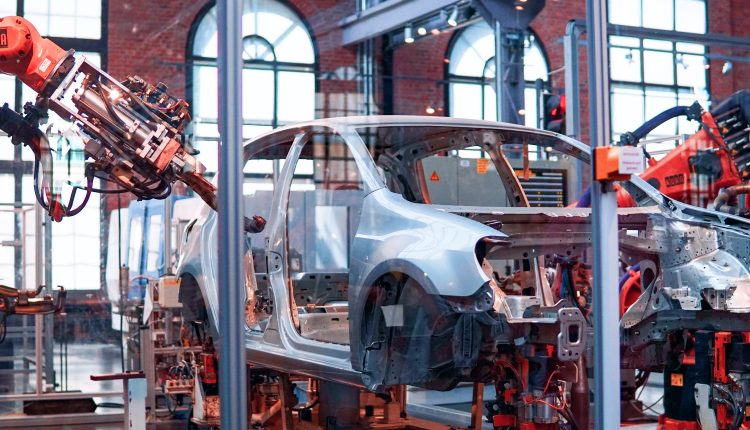Trends of Artificial Intelligence Applications in the Japanese Manufacturing Industry
AI Policy Trends in the Manufacturing Industry
In 2017, the Government of Japan announced “Connected Industries” as a future policy direction for the manufacturing industry. It reflects a vision of the manufacturing industry connecting humans, machines, and technology to generate new values. This vision relies on three core values – These are the 1) realisation of a new digital society in which humans and machines work in harmony, 2) provision of solutions for social problems by promoting cooperation and collaboration, and 3) promotion of human resource development for a highly digitalised business environment.
The key to achieving “Connected Industries” is to advance digitalisation and smart technologies, including Artifical Intelligence (AI). A white paper published by the Ministry of Economy, Trade and Industry addresses a possibility of transformative change in the manufacturing industry by applying AI in engineering and supply chains.
Challenges of Implementing AI in the Manufacturing Industry
The number of companies considering the implementation of AI technology is increasing, especially among large companies. However, successful cases of AI implementation in the manufacturing industry are still limited due to high implementation costs and coordination required among supply chains to consolidate data from different systems. Moreover, the adoption of AI technologies requires proactive involvement and strategic decision of senior management, which is considered as a major challenge in Japanese companies.
AI Applications and Implementation
Kewpie Corporation, established in 1919, is one of the leading food manufacturing companies in Japan, which adopted the world’s first image inspection system incorporating machine learning (ML) in 2018.
The company introduced AI to screen defective materials in the manufacturing process such as separating raw potatoes used for production from other objects thus, improving production efficiency. Due to the lack of sufficient data on defective patterns, the company employed about 1 million datasets and 10,000 images of acceptable patterns as the validation set. The case is unique because the company organised a task force team recruited internally rather than assigning the project to the AI department. The case won the first prize in the Deep Learning Business Award in 2019 organised by Nikkei BP.
Based on this experience, the company launched a consortium on “Safety of Raw Materials and Food”, aiming to share the experience of adopting an image inspection system incorporating ML and standardisation. The company plans to build alliances with small and medium-sized software and hardware companies globally to develop the image inspection system and sell it to collaborating companies at a low price.
Policy Forecasts on AI Application Strategies in the Manufacturing Industry
Due to the impact of COVID-19, the government identifies “resilience”, “green”, and “digitalisation” as the most critical aspects of the future business strategy, particularly of the manufacturing industry. In other words, the future business strategy should include 1) increasing the supply chain’s resilience, 2) promoting carbon neutrality across its supply chain, and 3) accelerating digital transformation.
Sources
White Paper on Manufacturing Industries 2020, Ministry of Economy, Trade and Industry of Japan
https://www.meti.go.jp/report/whitepaper/mono/2020/honbun_pdf/pdf/all.pdf
White Paper on Manufacturing Industries 2021, Ministry of Economy, Trade and Industry of Japan
https://www.meti.go.jp/press/2021/05/20210528002/20210528002-3.pdf
AI Hakusho 3.1, Chapter3 AI Application Trends in Japanese Manufacturing Industry

